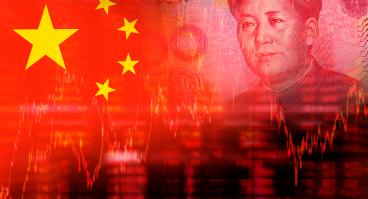Biden Should Reengage on International Digital Trade Rules

Table of Contents
Author(s)
Share this Publication
- Print This Publication
- Cite This Publication Copy Citation
Simon Lester, “Biden Should Reengage on International Digital Trade Rules” (Houston: Rice University’s Baker Institute for Public Policy, March 7, 2024), https://doi.org/10.25613/QA09-1Y61.
Tags
In recent months, the Biden administration has made some people unhappy on international digital trade rules. Certain members of Congress and business groups are particularly upset. The Office of the United States Trade Representative (USTR), led by Katherine Tai, has been the main target of the criticism, thanks to its decision to step back from positions (including on data flows and nondiscrimination against digital products) long held by the U.S. government and reverse course in ongoing negotiations at the World Trade Organization (WTO). USTR took a similar approach to these issues in the Indo-Pacific Economic Framework (IPEF) talks.
Tai has offered some valid reasons for her approach, including that it is extremely difficult to negotiate international agreements when U.S. domestic policy in the area is unsettled. But if the administration wants to influence a conversation that will otherwise take place without the U.S., it should develop its positions and reengage with international negotiations. The state of the domestic regulatory debate may be unsettled, but there are ways of crafting international rules that provide flexibility for whatever domestic policy emerges.
An Internal Struggle in the Biden Administration
Media reports indicate that the Biden administration is in the middle of an internal struggle over international digital trade rules. After USTR withdrew support for prior U.S. government proposals and positions as part of the WTO negotiations, the White House National Security Council responded to the resulting outcry by convening “listening sessions” with stakeholders in the hopes of reconciling competing viewpoints. At this point, it is not clear when — or if — anything concrete will result from this process.
In defense of USTR’s approach, Tai has pointed out that having trade officials negotiate international rules on digital trade does not make sense right now. The agency does not want to negotiate an international agreement that ties the hands of U.S. legislators working on the details of a domestic regulatory framework.
As Tai put it recently: “How we regulate data, and how we regulate the companies that accumulate, harvest and trade in this data, is something that we need to resolve and advance [domestically] before we can thoughtfully and responsibly engage in trade negotiations to figure out what the limits are in terms of what we should be doing and what the goals are, of what we should be doing with our trading partners.”
Along the same lines, she has also noted: “In areas where the U.S. Congress continues to debate and has not settled regulatory questions, [such as on digital trade], … there is going to be a limit to what we can do … in the international sphere.” These are sensible concerns about the impact of international rules on the domestic regulation of digital trade.
Flexible Rules Are Key
To address these concerns, Biden administration officials could push for international rules that are flexible enough to protect future domestic regulations from being found to violate these rules, unless the regulations are actually protectionist in nature. The key is to craft a set of rules that rely on nondiscrimination as the guiding principle — and to do so in a way that only regulations that are used as disguised protectionism, and not regulations used to achieve objectives such as protecting consumers' privacy, will be caught.
To get these digital rules right, it is worth looking at the decades of experience the WTO, and its predecessor the General Agreement on Tariffs and Trade (GATT), have with similar rules that deal with trade in both goods and services. GATT/WTO litigation on domestic regulatory issues has been controversial at times, involving international judgements on issues such as U.S. clean air regulations and the regulation of fishing practices that could affect sea turtles and dolphins. Rulings on these issues have made certain nongovernmental organizations and civil society groups wary of trade agreements in general, and this view has carried over to the negotiations on digital trade. We can use the lessons from past GATT/WTO controversies to craft rules that avoid similar problems with digital trade.
The core of the problem is that proponents of regulation may say they are trying to promote public policy goals such as protecting personal privacy, but sometimes during the regulatory process an interest group is able to slip in provisions that are designed to favor domestic firms over their foreign competitors. To achieve the right balance in digital trade rules, what is needed is a carefully crafted set of obligations and exceptions that allows the privacy protections, but catches the disguised protectionism.
To illustrate this, take the issue of the free flow of data, which has been a key issue in the debate over digital trade regulation. Tai explained the importance of this issue as follows: “The flow of data, the decisions around where data needs to be stored, how it needs to be handled, takes on much, much different dimensions [today than previously] because … the data is no longer just about facilitating traditional types of transactions. The data has become the commodity in and of itself.” Tech companies would like to keep the flow of data as free as possible, so they can provide their services to consumers efficiently and profitably.
Recent digital trade agreements have included broad obligations that prevent domestic restrictions on these data flows. But the political reality is that there will be some restrictions for various reasons, and the agreements tend to have exceptions that allow restrictions when they are based on legitimate public policy goals, such as protecting consumer privacy. The challenge is to calibrate the language of the exceptions so that they allow regulations that are genuinely about privacy, but cannot be used to justify measures that constitute disguised protectionism. The key to getting the right balance is to rely on language providing that the regulation must not constitute “arbitrary or unjustifiable discrimination between countries where like conditions prevail.”
Under this language, as long as a government avoids nationality-based discrimination in its regulations, and is not using regulation as a disguised means of protectionism, the regulation will be permitted under the agreement. By contrast, language that says any restrictions on data transfers must not be “greater than are necessary to achieve its objective” goes much further and leads to concerns about international rules overly constraining domestic regulation. It is these “necessity” tests that have been a main target of civil society critics at the GATT/WTO, and they should be avoided here.
Countries Could Agree to Phase in Rules
An additional way to assuage concerns about international rules in this area is to provide a phase-in period for the rules to be subject to enforcement. Rather than having litigation be available right from the start, international agreements on digital trade could rely at first on a committee that meets regularly to discuss the domestic regulations being developed, through which governments can get a sense of how the international principles they establish might apply to real world regulations. An adjudication mechanism could take effect in a couple years, after governments gained a better sense of what they were signing on to.
Conclusion
It is understandable that the Biden administration is wary of this issue, as they have stakeholders, including members of Congress, who are pushing them not to agree to international rules that might constrain domestic regulation in any way. But the international discussions will take place regardless of whether the U.S. participates or not. Other governments are pushing ahead with rules, and they do not appear to feel constrained in adopting domestic regulations in this area. An approach involving exceptions language that learns from the GATT/WTO experience could reassure the Biden administration, as this would allow it to shape the international discussion while still maintaining the policy space for eventual domestic regulation of digital trade.
This material may be quoted or reproduced without prior permission, provided appropriate credit is given to the author and Rice University’s Baker Institute for Public Policy. The views expressed herein are those of the individual author(s), and do not necessarily represent the views of Rice University’s Baker Institute for Public Policy.



